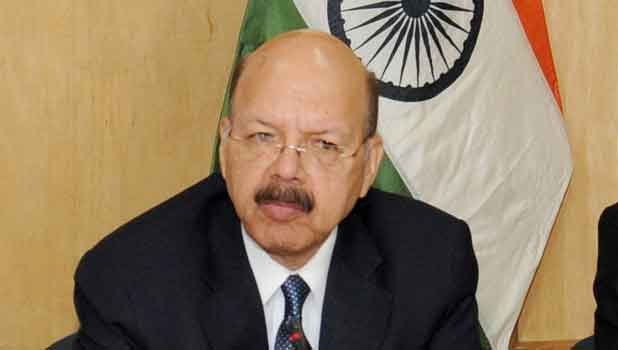Caravan Daily News
CHANDIGARH — In the recently concluded five state assembly elections, a whopping Rs 350 crores were seized which is three times higher than what was seized in the 2012 assembly elections. This was stated by Chief Election Commissioner (CEC) Dr. Nasim Zaidi while addressing the 13th ADR Annual National Conference held at Punjab University here on Saturday.
Expressing grave concern over the growing influence of money in the poll process, he emphasized that the seized money is only the tip of the iceberg.
On the issue, Dr. Zaidi said a multi-dimensional approach needs to be taken to curb the misuse of money power in elections. He said that we should formulate a strong anti-bribery law or legal framework; there should be strict enforcement on the ground and lastly, ethical voting practices need to be inculcated by voters.
Underlining the some of the initiatives taken by the ECI to curb bribing in elections, he said that the ECI has made recommendations to the Law Ministry to amend the RP Act and to insert a new section 58B, which would empower the Commission to countermand elections based on credible evidence relating to widespread bribery.
Although the Law Ministry has disagreed thrice with this proposal in the last one year, the Commission is constantly pushing the need to be empowered on the lines of Section 58 of RP Act which deals with countermanding of elections due to booth capturing. The CEC has also proposed that bribing of voters should also be made a cognizable offence.
The CEC observed that there has been steep rise in the assets of the candidates seeking re-election and that the electors have every right to know the causes behind this sharp increase in assets.
An important development which has taken place is that the ECI has recommended the amendment of Form 26, where they would be required to add a column for declaring the details of sources of income of candidates and their spouses.
Dr. Zaidi also mentioned that the ECI has been formulating policy to make sure that there is transparency in declaration by candidates on any disqualifications at the time of their nominations.
The Commission has earlier seen instances where the candidates did not declare their disqualifications at the time of nomination. The ECI has amended the rules to include declaration of disqualifications in nomination forms as mandatory.
This includes holding of office of profit, insolvency, allegiance to a foreign country and any disqualifications incurred under Section 8A of RP Act. This also includes grounds of corruption and most importantly any substantive contracts with the government which the candidate might not have disclosed at the time of filing their nomination papers.
He appreciated the ongoing efforts of ADR and National Election Watch (NEW) in carrying forward the civil society movement for electoral and political reforms. ECI has completed a study on data needs of the Commission and an analytics roadmap has been prepared based on best practices adopted by several leading electoral management bodies, he said.
This roadmap is likely to be implemented in one year time frame and this will integrate all kinds of databases in the Commission. He laid strong emphasis on data presentation and visual analytics in the friendliest manner possible.
On increasing opacity in political financing, Dr. Zaidi underlined that political parties under the current legal framework are loosely governed, be it registration, funding, expenditure etc.
Regarding election financing, he said that it should rest on four pillars:
1) Laying down the expenditure limit of candidates and also of political parties, 2) Disclosure requirements for more transparency, 3) Compliance of disclosure requirements and 4) Penalties for non-adherence.
The CEC also expressed concern, the way few recent electoral reforms have been introduced in the past few months by the government. He said that by not reducing the limit of anonymity from Rs. 20,000 to Rs. 2000, the transparency has not been brought about.
He also stated that if the contribution has been made in the form of electoral bonds, it would not be a part of the contributions report of the political parties. This is a retrograde step which will enhance opacity in political party funding.
Commenting on the nature of State/Public funding, Prof. Arun Kumar said that black economy has grown manifold during last 70 years due to illegal nexus among politicians, businessmen, mafia etc. and also due to direct entry of criminals into politics post 1980s. .
He also said that there is a need for sustained movements against corruption and demand for accountability to defeat the abovementioned illegal nexus. Therefore, he felt that public funding will not help unless corruption is removed.
Highlighting the main issues with public funding, Professor Trilochan Sastry (ADR) said that the common voter has to take responsibility for its own welfare and not vote for candidates who are buying votes. While Prof. Jagdeep Chhokar emphasized that the only pre-requisite before even talking about public funding is internal democracy among political parties.
The conference also discussed innovative ideas towards greater voter awareness at the grass-root level. Sanjay Singh of UP Election Watch said that political parties are not willing to change and the ECI has its own limitations. Stressing on this issue, he believed that the target audience must be the youth to spread voter awareness.
He discussed the methods he used in UP such as formation of district election committee, celebrity videos, local songs etc. He insisted that the key to success in this area is persistence.

